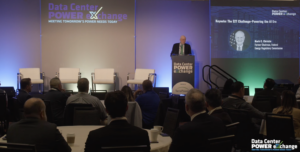If ever there were a case of winning all the battles and losing the war, it would be the saga of the long-delayed-and-now-probably-dead Cape Wind offshore wind project in Massachusetts.
As I wrote last year (see “When States Try to Manipulate Wholesale Power Markets” in the March 2014 issue), this project that hoped to be the nation’s first offshore wind farm has been fighting headwinds since it was first proposed more than a decade ago. The fundamental problem has always been the price tag. Even with the help of subsidies and loan guarantees, Cape Wind was going to be so expensive that its developers could not offer its power into the ISO-New England power market at competitive prices.
The issue is not, as some supporters have claimed, an opposition to wind power amongst the region’s utilities. They’re already buying quite a lot of it under various state renewable portfolio standards, including Massachusetts’ Green Communities Act. The problem is that land-based wind power is substantially cheaper than anything Cape Wind could offer.
When National Grid and NStar were bullied into signing power purchase agreements (PPAs) with Cape Wind (for 50% and 27.5% of its power, respectively) by the Massachusetts state government, they were forced to pay an initial rate of 18.7 cents/kWh—more than twice what they were paying for land-based wind—with a 3.5% increase every year. That made a lot of people unhappy.
Escape Clause
But those PPAs had an out. Cape Wind’s developers had to either close financing and begin construction by the end of 2014 or post a $645,000 security deposit to extend the deadline by six months (or $1.29 million for another year). Cape Wind still needs to raise a lot more money (and sell the remaining 22.5% of its output), but having PPAs in place is pretty much a prerequisite for a project like this to proceed. With the total cost projected to be around $2.5 billion, one would have thought committing $645,000 to save the PPAs would be a no-brainer. For whatever reason—the developers may not have had the money to do it—Cape Wind chose to forgo the deposit.
Instead, Cape Wind invoked what is known as a force majeure clause in the PPA. Force majeure —French for “superior force”—is the name given to a common provision in most contracts that can free the parties from performing their obligations when an extraordinary event beyond their control makes performance impossible. Though the term had a traditional meaning, U.S. courts nowadays strictly construe these clauses as drafted in the contract. For an event to trigger force majeure, it has to fit within the terms of the agreement.
On Dec. 31, Cape Wind chief Jim Gordon wrote to NStar and National Grid, as well as Massachusetts regulators, asserting that the repeated litigation against Cape Wind excused it from its obligations to close financing by that date.
In one respect, Gordon had a point. Opponents of Cape Wind have filed a rather impressive 26 lawsuits against the project, including the one I wrote about last March. Every single one of them failed, with the most recent one having been dismissed in May. The groups behind them, starting with billionaire and bête noire of the left Bill Koch, have been frank about their aim to delay Cape Wind as long as they could.
Out the Door
The utilities’ feelings about the PPAs can probably be judged by the alacrity with which they abandoned them the moment they had the opportunity. On Jan. 6, the second business day after the deadline had passed, both NStar and National Grid announced that they were jumping ship. Overnight, Cape Wind went from having sold 77.5% of its power to 0%. Northeast Utilities (which merged with NStar in 2012) CEO Tom May later told The Boston Globe he was waiting for the first possible moment to get out.
Cape Wind has since responded that the joint move is invalid, because its failure to begin construction was excused by force majeure. Unfortunately for Cape Wind, that’s a dispute that won’t be resolved without more litigation. The force majeure clause in the PPA is too long to quote here, but it does require that the triggering event be both “unusual” and “unexpected,” and that it not be anything that “merely increases the costs or causes an economic hardship to a Party.”
With the Koch-funded litigation over the project having become a fixture in the process well before the PPAs took effect, it may be tough for Cape Wind to convince a court that there was anything unusual or unexpected about it at the time the agreement was signed. Meanwhile, its chances of closing financing, let alone beginning construction, without a PPA in place are basically nil. (As I write this in late January, Cape Wind has been suspended from participation in the ISO-New England power market, and its developers just abandoned two leases they had entered to support construction.)
If there’s a lesson to be drawn here, it’s probably that there is a limit to how far governments can go to force energy projects through when the market is resisting them. Had Cape Wind made more financial sense, it’s likely that the customers for its power wouldn’t have bolted for the exits the moment the doors were unlocked. ■
— Thomas W. Overton, JD is a POWER associate editor.









